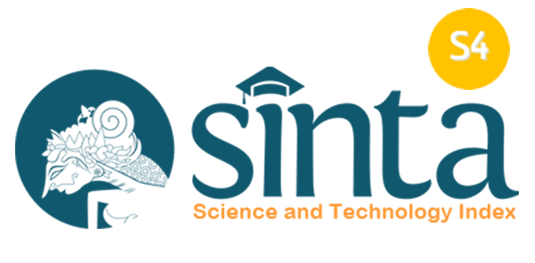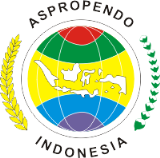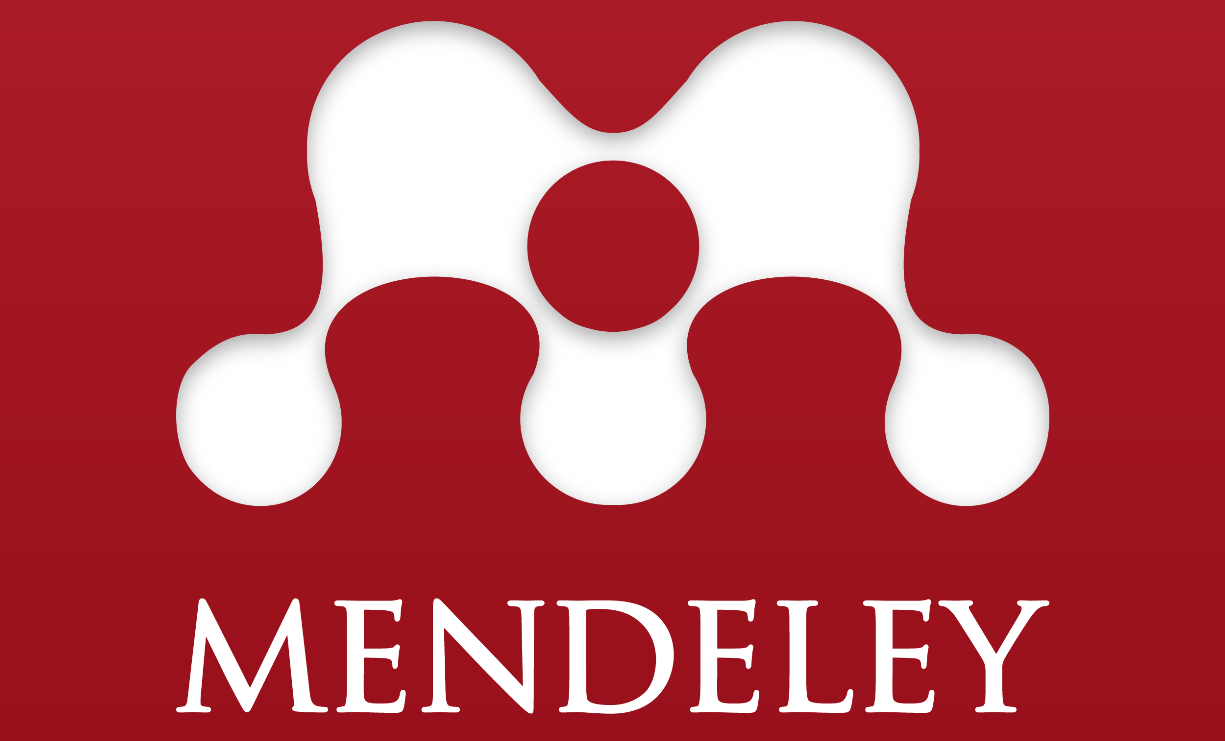Model Keunggulan Bersaing Untuk UMKM Tempe
Abstract
Abstract
SMEs are a sector that has proven to be resilient in the face of the 1998 monetary crisis. In 2020 the world will be hit by the COVID-19 pandemic, and Indonesia is no exception. Therefore, it is good to continue researching the competitive advantages of tempeh SMEs in the midst of a pandemic condition like now and look at the problem from a comprehensive direction and pay attention to what variables can continue to support competitive advantage. Competitive advantage is an important factor in strategic management. With a competitive advantage, SMEs will be able to continue their business, win the competition and achieve their goals. In this study, primary data was used with the data collection method using a questionnaire that we distributed to 118 Tempe SMEs. Statistical data analysis uses path analysis with SPSS 16 program. The strategies formulated in this research to achieve competitive advantage include market orientation and business performance, where business performance is an intervening variable. From the results of statistical tests conducted in this study, all hypotheses were accepted with significant effect.
Keywords: SMEs Competitive Advance, Export SMEs, Indonesian SMEs, Tempe SMEs
Abstrak
UMKM merupakan sektor yang sudah terbukti tangguh menghadapi badai krisis moneter tahun 1998. Di tahun 2020 dunia dilanda pandemic covid-19 tidak terkecuali Indonesia. Oleh sebab itu baik kiranya untuk terus meneliti keunggulan bersaing UMKM tempe di tengah kondisi pandemic seperti sekarang ini serta melihat permasalahan dari arah yang komprehensif dan memperhatikan variable apa saja yang dapat terus mendukung keunggulan bersaing.. Keunggulan bersaing merupakan faktor penting dalam manajemen strategis. Dengan keunggulan bersaing, UMKM akan dapat melanjutkan bisnisnya, memenangkan persaingan dan mencapai tujuannya. Dalam penelitian ini mnggunakan data primer dengan metode pengumpulan data menggunakan kuesioner yang kami sebar ke 118 UMKM Tempe. Analisis data statistic menggunakan analisis jalur dengan program SPSS 16. Strategi yang dirumuskan dalam riset ini untuk mencapai keunggulan bersaing meliputi orientasi pasar dan kinerja bisnis, dimana kinerja bisnis sebagai variable intervening. Dari hasil uji statistik yang dilakukan dalam penelitian ini bahwa semua hipotesis diterima dengan hasil berpengaruh signifikan.
Kata kunci: SMEs Competitive Advantadge; Export SMEs; Indonesia SMEs; Tempe SMEs.
Keywords
Full Text:
PDFReferences
Kara, Ali,. John E. Spillan,. & Oscar W DeShields Jr. (2005). The Effect of a Market Orientation on Business Performance: A Study of Small-Sized Service Retailers using MARKOR Scale. Journal of Small Business Management, 43. 2 : 105-118.
Bhuian, S. (1998). An Empirical Examination of Market Orientation In Saudi Arabian Manufacturing Companies. Journal of Business Research., Vol. 43. No. 1, 13-25.
Deshpande R, Farley JU, W. J. F. (1993a). Corporate culture, customer orientation, and innovativeness in Japanese firms: a Quadrad analysis. J Mark, pp.57(1):23–37.
Deshpande R, Farley JU, W. J. F. (1993b). Corporate culture, customer orientation, and innovativeness in Japanese firms: a Quadrad analysis. J Mark, 57(1), 23–37.
Ernawati F.Y. (2016). Model Peningkatan Keunggulan Kompetitif Melalui Kinerja Perusahaan. Jurnal STIE Semarang, Vol. 8.No.3
Febriatmoko. B, Aquinia. A, H. W. (2019). Analisis Keunggulan Bersaing; Usulan Model Sederhana Untuk UMKM Tempe. Management Dynamic Conference 5th.
Febriatmoko, B., Raharjo, S. T., & Manajemen, M. (2015). Meningkatkan Kinerja Bisnis Melalui Keunggulan Bersaing Kuliner Khas Semarang. Jurnal Bisnis Strategi, 24(1), 83–99. https://doi.org/10.14710/jbs.24.1.83-99
Ghosh, B. C., H.P. Schoch, D.B. Taylor, W. W. Kwan, & T.S. Kim. (1994). Top Performing Organization of Australia, New Zeland and Singapore: Comparative Study of Their Marketing Effectiveness. Marketing Intelegence And Planning.
Greenley, Gordon. (2005). Market Orientation and Company Performance: Empirical Evidence From UK Companies. British Journal of Management. Vol. 6. 1 - 13. 10.1111/j.1467-8551.1995.tb00082.x.
Han JK, Kim N, S. R. (1998). Market orientation and organizational performance: is innovation a missing link?. J Mark, 30–45.
Harris, L.C and Ogbonna, E. (2001). Startegic Human Resource Management, Market Orientation, and Organizational Performance. Journal of Business Research, Vol. 51. No.2, 157–166.
Jaworski, B.J. and Kohli, A. K. (1993). “Market Orientation; Antecedents and Consequences.” Journal of Marketing., Vol. 57.(July), 53–70.
Kirca, A, H. Jayachandran, S. and Bearden, W. (2005). Market Orientation: A Meta-Analytic Review a nd Assessment of Its Antecedents and Impact on Performance. Journal of Marketing., Vol. 69, 24–41.
Matsuno, K. and Mentzer, J. T. (2000). The Effects of Strategy Type on The Market Orientattion-Performance Relationship. Journal of Marketing. Vol. 64 (October), 1–16.
Pitt, L., Caruana, A. and Berthon, P. (1996). Market Orientation And Business Performance: Some European Evidence. International Marketing Review. Vol. 13(No. 1), 5-18.
Pramesti, N., & Giantari, I. (2016). Peran Orientasi Pasar Memediasi Pengaruh Orientasi Kewirausahaan Terhadap Kinerja Ukm Industri Kerajinan Endek. None, 5(9), 242584.
Selnes, F., Jaworski, B.J Kohli, A. K. (1996). Market Orientation in United States And Scadinavias Companies: A Cross Cultural Study. Scandinavian Management Journal. Vol. 12.(No. 2.), 139-57.
Speed, R., and S. (1993). Customers, Strategy And Performance. International Journal of Bank Marketing. 11(NO. 5), 3–11.
Sugiyono, P. D. (2018). Metode Penelitian Kuantitatif, Kualitatif, dan R&D. Bandung: Alfabeta.
Suliyanto & Rahab. (2012). The Role of Market Ori¬entation and Learning Orientation in Im¬proving Innovativeness and Performance of Small and Medium Enterprises. Asian Social Science., 8(1), 134-145.
Yadav, S. K & Tripathi, V. (2014). Market Orientation and SMEs Performance. Journal of Entrepreneurship and Management., 3(3), 27-34.
Yuan Li., Zhao, Y., Tan, J & Liy, Y. (2008). Moderating Effects of Entrepreneurial Orientation on Market. Journal of Small Business Management., 46(1), 113-33.
DOI: https://doi.org/10.25134/equi.v19i01.4829
Refbacks
- There are currently no refbacks.













